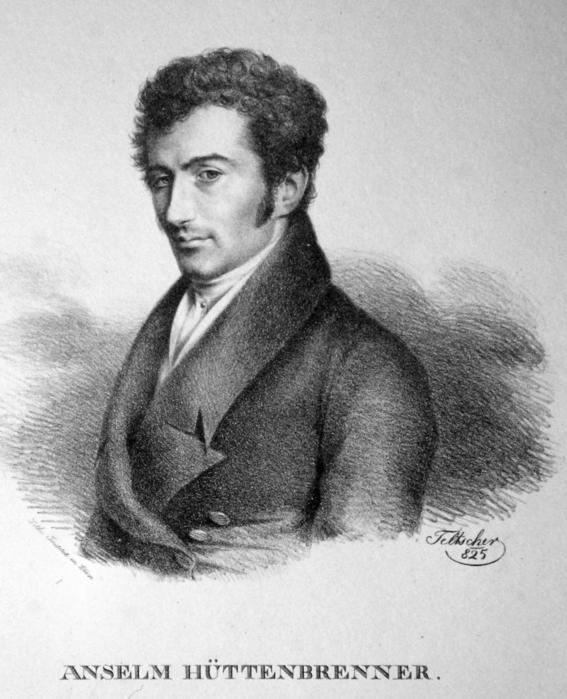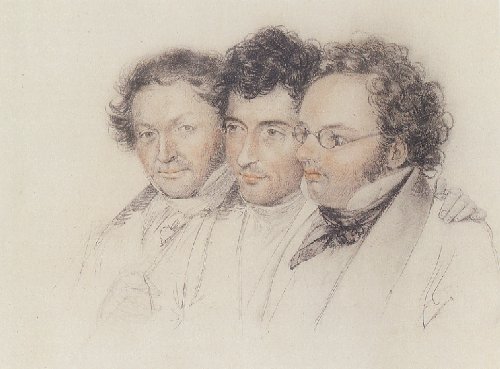<Back to Index>
- Geologist John William Dawson, 1820
- Composer Anselm Hüttenbrenner, 1794
- Leader of the Social Democratic Party of Germany Kurt Schumacher, 1895
PAGE SPONSOR


Anselm Hüttenbrenner (13 October 1794 – 5 June 1868) was an Austrian composer. He was on friendly terms with both Ludwig van Beethoven — he was one of only two people present at his death — and Franz Schubert, his recollections of whom — recorded for Franz Liszt in 1854 (and eventually published in 1906) — constitute an interesting but probably unreliable document in Schubertian biographical studies.
Hüttenbrenner was born in Graz, the son of a wealthy landowner. He attended the Graz Lyzeum, and studied law at the University of Graz, but was also composing music at this time. Count Moritz von Fries was impressed with his ability as a pianist, and following the Count's advice, Hüttenbrenner left in April 1815 for Vienna to study under Antonio Salieri. His first published works (for piano; and songs) began to appear shortly afterwards, and the String Quartet (Op. 3) came out in 1816. He briefly returned to Graz in 1818, but was back in Vienna the following year, earning a living in a government office.
In 1821 Hüttenbrenner inherited the family estate and married. Schubert sent the manuscript of his Unfinished Symphony to
Hüttenbrenner, via Hüttenbrenner's brother Josef, around
1823. The manuscript remained with Hüttenbrenner until Johann Herbeck visited him in Ober - Andritz in 1865, and took the score away with him back to Vienna, where he conducted the first performance in December 1865. Hüttenbrenner held the post of director of the Steiermärkischer Musikverein from 1825 to 1829. His Requiem in C minor was performed at Schubert's memorial service on 23 December 1828. He was a follower of Jakob Lorber and from 1840 he participated actively in the writing down what was allegedly dictated to Lorber by God. Hüttenbrenner died in Ober - Andritz at the age of 73.